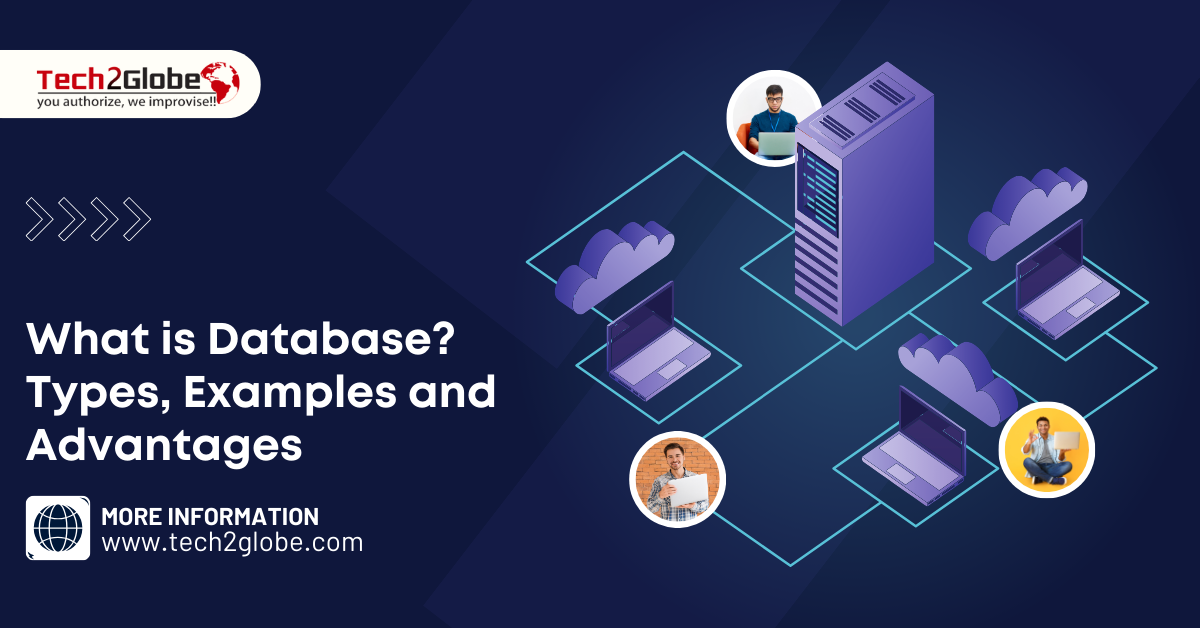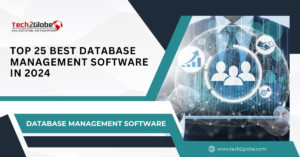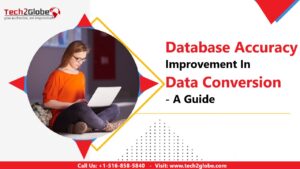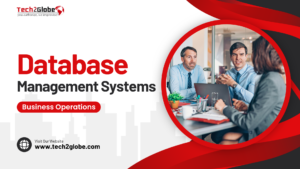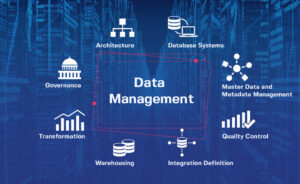A database system is a set of interlinked software components that allow us to store, retrieve, update, and remove data in a computer system. Database systems efficiently process and query the data. In addition, A Co.’s data base contains a vast array of information collected from various sources.
You might question how a database works. Databases allow users to submit information in a variety of ways, both structured and unstructured. Users can then edit the data as they see using a software application to build relationships between pieces of information. For example, a table with customers, books, and sales information can be linked by customer ID and ISBN. This allows for easy updating of customer and book details when a customer moves or changes the price of a book, ensuring accurate records for future sales.
In this blog, you will get an overview of the database, its types, examples, and advantages.
Types of Databases
Data is a dynamic thing, hence the method it is stored varies greatly. It is also the reason why corporations create their own databases that meet their own requirements. For you, we have briefly explained the different types of database systems
1. Centralized Database
This database keeps information in a centralized database system. It allows users to view saved data from several locations using various applications. These apps include the authentication procedure, which allows users to access data securely. A Central Library, which houses a central database for each library at a college or university, is an example of a centralized database.
2. Distributed Database
In contrast to centralized database systems, distributed systems disperse data among several database systems within an organization. These database systems are linked together via communication channels. These connections make it easier for end users to obtain the data.
3. NoSQL Database
Non-SQL and Not Only SQL is a database that can store various data sets. It is not a relational database because it holds data in multiple formats, not just tabular. It was founded in response to a rise in demand for modern application development. As a result, NoSQL provided a diverse range of database technologies in response to demand.
4. Cloud database
A database that stores data in a virtual environment and runs on a cloud computing platform. It offers users a variety of cloud computing services (SaaS, PaaS, IaaS, etc.) to access the database.
5. Relational Database
This database uses the relational data model, which stores data in the form of rows (tuples) and columns (attributes) that form a table (relation). A relational database uses SQL to store, manipulate, and preserve data. E.F. Codd invented the database in 1970. Each table in the database contains a key that distinguishes the data from others.
6. Network Database
It is the database that typically adheres to the network data model. The data is represented here as nodes that are linked together. Unlike hierarchical databases, it allows each record to have numerous child and parent nodes, resulting in a generalized graph structure.
Examples of Databases
We have listed a few real-life examples showcasing how versatile database systems can be:
Social Media
Databases play a growing part as we move forward with social media. Social media companies collect as much information about you as possible. They track your friends and postings, but they also track how you interact with the stuff in your feed. Has Facebook discovered that you are more inclined to comment on posts with puppy pictures? Your feed is more likely to include posts with photographs of cuddly animals. Do you often leave furious comments on posts about specific topics? Then, your feed might consist mostly of political posts.
Finances
Databases are essential in the financial world, storing and reusing information in various sectors like stock markets and eCommerce businesses. They are powerful and secure for tracking the vast amount of data involved in daily global transactions, and financial businesses use models to analyze collected data to predict future activity.
Sports
Fan engagement in national sports is dependent on the database rather than simply utilizing it. From fantasy football to March Madness brackets, the sports business relies on large cloud databases to manage everything. Such databases keep and evaluate player statistics, game performances, injury reports, and other information.
E-commerce
Online organizations utilize databases to organize products, pricing, customer information, and purchasing history. These databases enable store owners to recommend products to customers, stored securely and protected by PCI Compliance standards.
Healthcare
Doctors’ offices and healthcare institutions keep large volumes of patient data for convenient access. This collection of information is supported by enormous databases with complicated data structures and security measures in place to secure sensitive data. All of these organizations must guarantee that their data management practices meet HIPAA criteria.
Cloud Storage
When you save images or documents to your smartphone or tablet or even to any online backup service, you are transferring your files to the cloud. In this big, central storage environment, you only utilize a small percentage of the available capacity. Dropbox, Google Drive, Private Cloud powered by VMware, and iCloud are some of the personal cloud storage options available to you.
Advantages of Using Databases
Opt for our database management services and get the following benefits:
Reducing Data Redundancy
File-based data management systems feature various files that are stored in a variety of locations within a system or between systems. As a result, there were frequently several copies of the same file, causing data redundancy.
This is prevented in a database since there is just one database, and any changes are reflected immediately. Because of this, there is no possibility of encountering duplicate data.
Sharing of Data
Database users can share data among themselves, with different levels of authorization based on correct protocols. Multiple remote users can access the database simultaneously and share the data. However, data sharing is limited to authorized users only.
Data Integrity
Data integrity refers to the accuracy and consistency of the data in the database. A DBMS has numerous databases. Therefore, data integrity is critical. All of these databases store data that is accessible to numerous users. As a result, it is critical to verify that data is accurate and consistent across all databases and users.
Data Security
Data security is an essential topic in a database. Only permitted users should be able to access the database, and a username and password should verify their identities. Unauthorized users should not be allowed to access the database under any circumstances because this violates the integrity restrictions.
Privacy
The Privacy rules in databases restrict access to authorized users based on their privacy constraints. These levels of access allow users to view data only within their allowed limits. For instance, access constraints in social networking sites vary for different accounts.
Backup and Recovery
The Database Management System (DBMS) automatically handles backup and recovery, eliminating the need for periodic data backups and restoring the database to its previous state after a crash or system failure.
Data Consistency
There is no data redundancy in a database, which ensures data consistency. All data appears consistently throughout the database, and it is the same for all users who access it. Furthermore, any changes made to the database are promptly reflected to all users, thus there is no data inconsistency.
Conclusion
Database is not a new term for us in today’s time. If you were unfamiliar with the term “database” until now, you might have just discovered its benefits, types, as well as advantages. No doubt in mentioning that databases have become a crucial foundation of modern-day infrastructure. Every type of database has certain features that undoubtedly assist organizations.
If you are thinking of improving your data management system now, take advantage of Tech2Globe’s extensive database management services.




